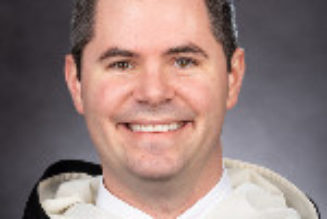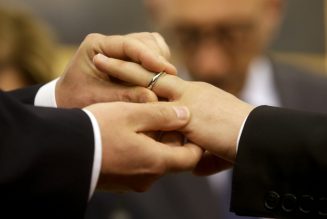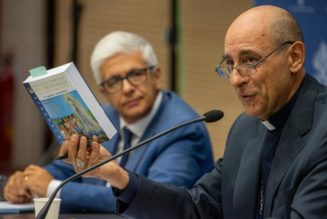ROME – For the whole Catholic world, August 15 means the Feast of the Assumption. In Italy, it also means ferragosto, the traditional summer holiday that sees the whole country head to either the beach or the mountains, or both, roughly from the second week of August until early September.
Pope Francis, famously the pontiff of the “staycation,” isn’t going anywhere, but a good chunk of his workforce will be, which means there’s always a push in early August to flush things out of the Vatican pipeline before the August doldrums.
Thursday brought a trio of appointments, rulings and decisions, all of which are of a piece with that time-honored tradition. They include:
- New appointments to the Council for the Economy, a body created by Francis in 2014 to oversee his financial reform.
- A ruling on the formula of baptism, basically holding that the traditional formula of the sacrament is mandatory.
- A decision on ecclesiastical jurisdiction on the Arabian Peninsula, which partially restores some prerogatives to the patriarchs of Eastern Catholic churches they lost 17 years ago.
Herewith, a few take-aways on the Vatican’s “Thursday Thunder.”
Council for the Economy
When Pope Francis established the Council for the Economy in 2014, it was meant to be the coordinating body for his reform. It’s also a unique case in the Vatican, in that it’s composed of eight cardinals and seven laity, and the lay members have full voting rights, which means that they exercise real decision-making authority.
The main headline from this crop of nominations is that six of the seven laity tapped by Francis are women, meaning this is a concrete application of his rhetoric about finding ways to empower women in the Church other than ordination to the priesthood.
One other note is that, taken in tandem with other recent financial appointments, the new lineup for the Council for the Economy represents another chapter in the emergence of what I’ve called Francis’s “Reform 2.0.”
The first wave of reform in 2013 and 2014 was largely an Anglo-German project, resting on the assumption that if notoriously dubious Italian business practices were a large part of the problem, then you needed non-Italians to fix them. Australian Cardinal George Pell, the first-ever Secretary for the Economy, was the towering (literally, since he stands 6’4”) symbol of that period.
Of late, however, the geographic balance of power has shifted to the Mediterranean, with the key roles going to Italians and Spaniards (representing the only two languages in which the pontiff is truly comfortable.) The top two positions as the Secretariat for the Economy are held by Spaniards, and now two of the seven laity on the council are also from Spain.
Eva Castillo Sanz is a veteran of Merrill Lynch who’s on the Board of Directors of Bankia, Spain’s fourth-largest bank. María Concepción Osákar Garaicoechea is the founder of Azora Altus SA, an institutional brokerage firm, and serves on the boards of 11 different companies.
They’re both heavy hitters, in other words, and given their provenance, will likely play an especially key role.
Baptism
A guy I met more than 20 years when I first started covering the Vatican once told me that the ideal Vatican response to any question should be netto, secco e non dice niente, meaning “clear, dry and not saying anything” beyond what was absolutely essential.
In all honesty, the Vatican has honored that rule more in the breach in recent years, often issuing extraordinarily prolix explanations of its decisions. A ruling from the Congregation for the Doctrine of the Faith Thursday in response to two questions about the formula for baptism was a clear exception, as it really pivots on just two words: “Negative” and “Affirmative.”
The first question was whether it’s valid to use the formula “we baptize you” rather than the traditional “I” (negative), and the second was whether people baptized using that formula have to be baptized using the proper vocabulary (affirmative).
Granted, there was a 1500-word “Doctrinal Note” from Spanish Cardinal Luis Ladaria, head of the congregation, explaining the decision, but even that was relatively terse by the usual standards. In a nutshell, Ladaria said the theology of the Church is that whoever leads the rite, it’s always Christ who baptizes, and thus the formula has to be “I” rather “we”, however noble the idea of recognizing the role of parents, godparents, etc., may be.
Though it’s a relatively small matter, this is another recent case in which Francis’s progressive base may be disappointed, in tandem with not signing off on women deacons or married priests in the Amazon.
It will be interesting going forward to see whether a greater share of liberals begin souring on Francis – and whether some portion of conservatives start defending him.
Eastern Patriarchs
Though the Catholic community on the Arabian Peninsula is tiny, it’s also highly diverse. While there are Catholics from the Latin church, including a sizeable population of Filipinos working in oil fields, as domestics, and so on, there are also plenty of people who hail from one of the Eastern churches – Lebanese who are Maronites, Egyptians who are Copts, Iraqis and Syrians who are Greek Melkites, to name a few.
For some time, the administrative question has been who’s responsible for those folks – is it the two Apostolic Vicariates on the peninsula, or their Eastern patriarchs back home?
Strictly from an organizational efficiency point of view, it makes a lot more sense for it to be the vicariates. With such a small population in overwhelmingly Muslim nations, it defies logic to duplicate pastoral resources and to impede coordination – often a special challenge with the Eastern churches, notoriously given to doing their own thing. Further, it’s also confusing to governments who speaks for the Christians in the country if a half-dozen prelates claim to lead some share of them.
That’s the basis on which the Vatican assigned jurisdiction to the vicariates in 2003 under St. John Paul II. On Thursday, however, Pope Francis decided to roll back that decision, returning responsibility for pastoral care to the Eastern patriarchs, though in a circumscribed fashion.
First, Francis made clear that the vicars will remain the representatives of the Catholic Church to the political authorities in their country. Second, Francis said he wants the various players involved to promote a “common vision of pastoral action, understanding and collaboration.”
Even with those caveats, the decision is still a gesture of respect for the Eastern patriarchs and comes in response to their explicit request. In effect, it’s a confirmation that especially when it comes to Eastern Christianity, for Francis ecclesiology wins out over efficiency.
Pope Francis repeatedly has said his ecclesial vision involves unity in diversity and a “healthy decentralization,” and he’s also made clear his ecumenical commitment to the churches of the East. In this case, he clearly was willing to prioritize what leaders of those churches wanted over what systems analysts probably would say.
Those three Thursday moves, as the saying goes, arguably aren’t bad for a day’s work. It remains to be seen whether that completes the Vatican’s vacation checklist, or whether even bigger twists are yet to come — such as, for instance, the long-awaited Vatican report on the McCarrick case, which some rumors suggest could come by the end of the month.
Follow John Allen on Twitter at @JohnLAllenJr.








![The Vatican extended Xi’s pontificate because it doesn’t understand the nature of the Chinese regime [WSJ paywall]…](https://salvationprosperity.net/wp-content/uploads/2022/10/the-vatican-extended-xis-pontificate-because-it-doesnt-understand-the-nature-of-the-chinese-regime-wsj-paywall-327x219.jpg)


